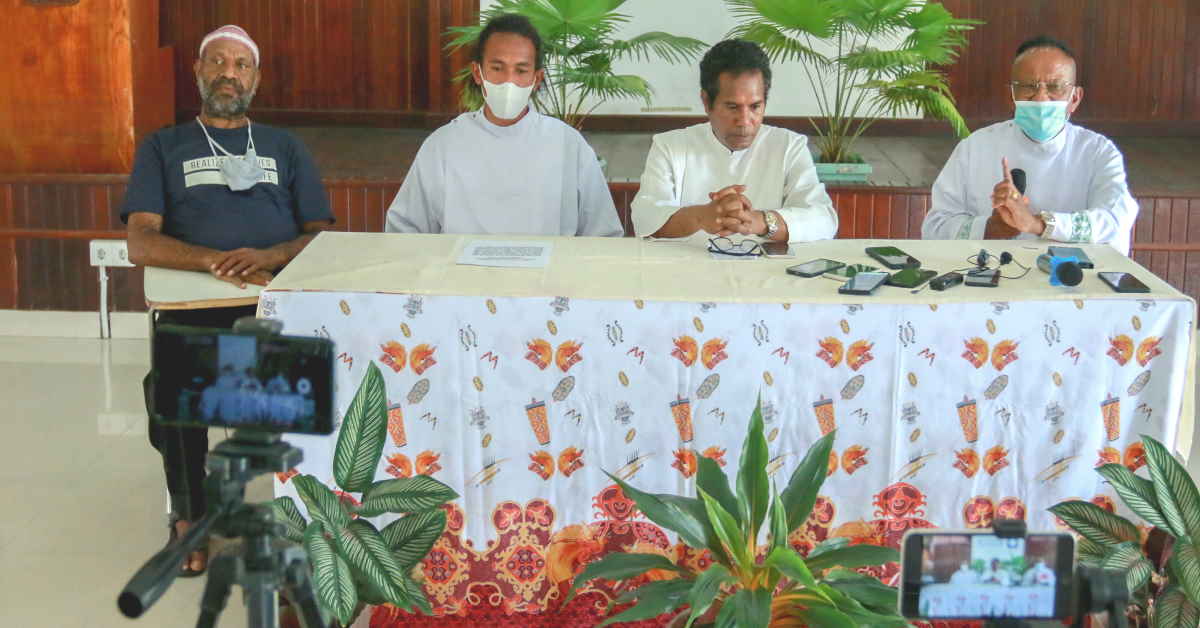Church leaders in Indonesia's conflict-wracked Papua region called for calm Sunday as thousands fled to shelters after a two-year-old boy was killed in a firefight between government troops and independence-seeking rebels.
The restive region at the easternmost edge of the Southeast Asian archipelago has been the scene of intermittent clashes for decades in one of the world's longest-running insurgencies.
This week, a two-year-old boy was killed in an exchange of gunfire while a six-year-old was hospitalised for bullet wounds sustained in the midst of a firefight in Intan Jaya district, according to authorities, who said the rebels later tried to take control of the local airport.
Police earlier blamed the guerrillas for the deadly shooting, but AFP could not independently verify responsibility for the killing.
Conflicting accounts are common in Papua, where Indonesian security forces have long been dogged by allegations of gross rights abuses against civilians.
Fearing more violence, about 2,000 Papuans have taken shelter in church-run buildings, said Father Dominikus Hodo at the Catholic Diocese in conflict-hit Timika.
"We're calling on both warring parties to immediately hold a ceasefire and start a dialogue to bring about lasting peace," Hodo told reporters Sunday.
Papua Police spokesman Faizal Ramadhani acknowledged the killing and that thousands have fled the area, but added that the military were in control of vital public facilities.
"The situation has been getting much better," he told AFP on Sunday.
Rebel spokesman Sebby Sambom said this week's firefight was a legitimate battle in the war for independence.
"Our stance is very clear in defending the right of the Papuan people to establish a state guaranteed by international law," he said in a text message.
"The war for the liberation of the Papuan nation will not stop until Papua is free."
A former Dutch colony, mineral-rich Papua declared itself independent in 1961, but neighbouring Indonesia took control two years later promising an independence referendum.
The subsequent UN-backed vote in favour of staying part of Indonesia was widely considered a sham, and set off years of conflict.
Papua's mostly Christian, Melanesian population shares few cultural connections with the rest of Muslim-majority Indonesia. – AFP
